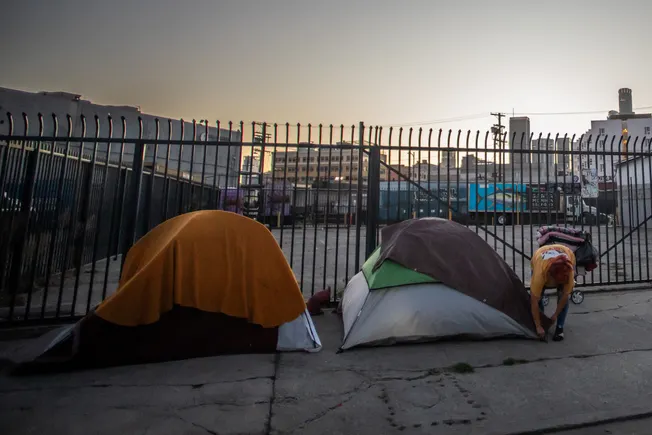Key Takeaways
- A study found that criminalizing homelessness does not effectively reduce its rates.
- Communities implementing these penalties face financial burdens without successful results.
- Collaborative efforts to create affordable housing and support services are recommended as more effective solutions.
Criminalization Ineffective in Addressing Homelessness
A recent study published in the Policy Studies Journal reveals that criminalizing behaviors associated with homelessness does not help to reduce homelessness rates. Researchers argue that imposing criminal ordinances leads to a “net welfare loss” for communities, as these measures are costly and ineffective.
Hannah Lebovits, assistant director of the Institute of Urban Studies at the University of Texas at Arlington, highlighted the study’s findings, noting the inefficacy of fines and incarceration in addressing the root causes of homelessness. In contrast, she advocates for building community partnerships to expand affordable housing and wraparound services as the most effective means to mitigate long-term homelessness.
The study comes amidst a recent executive order signed by President Donald Trump, aimed at tackling what he termed “endemic vagrancy.” This order prioritizes funding for states that enforce prohibitions against urban camping, loitering, and drug use. It also promotes indefinite mandatory treatment for individuals with severe mental illness or substance use disorders. These actions reflect a growing trend among local governments to resort to criminal ordinances as a deterrent against homelessness.
Lebovits conducted the study with Andrew Sullivan, an assistant professor at the University of Central Florida. Their research compared communities that adopted criminal ordinances to those that did not, revealing no significant differences in homelessness rates between the two. Lebovits called into question the effectiveness of what she described as “draconian” measures, highlighting that deterrence logic—relying on fines and jail time—does not actually prevent individuals from becoming homeless or provide necessary support services.
“If I simply cannot afford to live, the prospect of being fined for panhandling or spending a night in jail won’t change my circumstances,” Lebovits asserted. The study emphasizes that the heavy financial burden of building prisons or imposing fines on the homeless is an unsustainable solution.
Instead, the research advocates for a comprehensive approach that involves increasing affordable housing and support services tailored to the needs of individuals experiencing homelessness. This strategy aims to shift how society addresses homelessness, with the potential to decrease the likelihood of long-term homelessness more effectively than punitive measures.
Lebovits concluded, “That is the best approach. Even that approach will not stop all of this, but what it can do is quickly reorient the system to approach homelessness in a different way that reduces the likelihood of long-term homelessness.”
The content above is a summary. For more details, see the source article.















